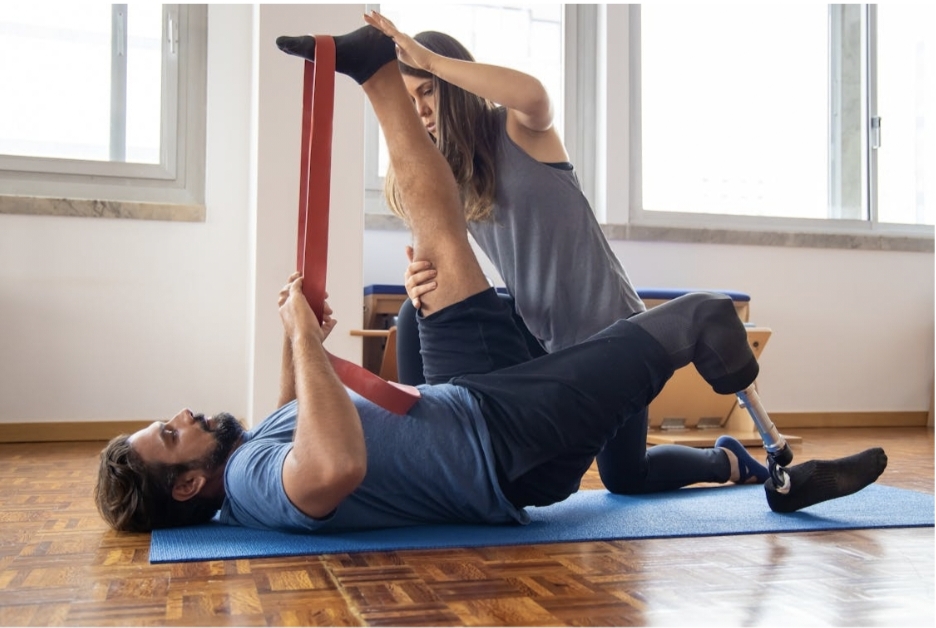1. Introduction
Although traveling after hip surgery might seem frightening, it can be safe and fun with proper precautions. From dreamy sandy beaches to bustling cities or a quiet getaway, surgery shouldn’t ground your travel plans forever. In fact, a little getaway planned well can boost your spirits and help you recover even faster! This blog will talk you through the tips you need to know and provide some wise precautions to ensure that your journey is smooth, safe, and stress-free. So, if you are ready to pack up your hospital gowns and travel gear, keep reading, and let’s shift you once again—comfortably and confidently!
2. When Can You Start Traveling After Hip Surgery?
So natural is the urge to pack your bags and hit the road after hip surgery—but timing is the key. Most doctors recommend waiting anywhere from 6 to 12 weeks before traveling, depending on your recovery progress and mode of traveling. Flying too soon after surgery or sitting for long periods may increase the risk of blood clots or discomfort. Always check with your surgeon before planning a trip. If you’re walking well, your pain is under control, and you can sit comfortably for an extended period, you might just get a green light. Until then, consider it preparation for your next adventure!
3. Precautions to Take Before Traveling
A. Get Medical Clearance
Before making any travel arrangements, whether booking tickets or packing your suitcase, clear it with your surgeon or physical therapist. The latter will evaluate your movements, healing progress, and risks, particularly concerning anything that may affect your blood clot risk or put undue stress on a joint. Travel can actually complicate or delay your recovery, so it is essential to take professional advice before embarking on a journey. A simple check-up with proper documentation can be helpful in case of special travel arrangements.
B. Choose the Right Mode of Transportation
Not all travel methods are hip friendly. Long car rides or cramped flights can be uncomfortable and unsafe. Choose the most convenient way with easily accessible movement and foot stretching. If flying, consider an aisle seat for more space and easy access. If driving, make regular stops. Priorities include comfort, mobility, and safety in deciding how you will get to your destination.
C. Plan for Accessibility
Accessibility is the best travel companion for you. Book rooms that include elevators, ramps, or ground-floor rooms. Then, call to find out if the bathrooms have shower bars, wheelchair-friendly paths, and elevators. While booking activities, go for those that require less walking or standing. Easy access to everything reduces strain on your new hip but also makes the trip way more enjoyable and less stressful.
4. Tips for Safe & Comfortable Travel
A. Wear Comfortable, Loose-Fitting Clothing
Above all else, post-hip surgery requires comfort in travel. Opt for loose, breathable clothing that will not hamper movement or ruffle your incision. Elastic waistbands, soft fabrics, and slip-on shoes get you to and from your destination without fuss. Avoid anything too tight or stiff; this is not the time to think of fashion over function. It makes it easier to sit, move, and lie during your journey.
B. Keep Your Medications Handy
Do not check your medications within the checked luggage or bury them deep inside a suitcase. Keep them accessible in your carry-on or personal bag, along with a copy of your prescriptions. You might require some anti-inflammatories, pain relievers, or blood thinners while you are traveling, and quick access will make all the difference then. Also, carry some extra just in case you get delayed while traveling-better safe than sorry!
C. Use Compression Stockings (if prescribed)
If your doctor approves, do not forget the compression stockings. They help promote blood flow and lower the chance of developing blood clots, especially on long trips by commercial airlines or cars. Get them on as soon as you begin your journey and wear them as approved. Not the most stylish accessory though, but a small sacrifice for the big peace of mind.
D. Move and Stretch Regularly (especially during flights or long drives)
Sitting still for too long can lead to stiffness and increase the risk of blood clots. Make it a habit to move every hour—whether it’s a quick walk down the aisle or a short break during a road trip. Gentle stretching helps keep your joints loose and your blood flowing. Set a timer if needed—your hips will thank you! Staying active is especially important for those recovering from or considering joint replacement in Jaipur, as movement
E. Avoid Heavy Luggage – Use a Trolley or Get Help
Do not lift or drag heavy bags after hip surgery. Use a wheeled suitcase; ask for the help of airport staff, hotel bellhops, or travel companions if necessary. Very frequently, airport facility usage for wheelchairs does happen. Make full use of it if needed. Reduce your burden and protect your healing hip; every bit of effort is worth it because it will be in it.
5. What to Pack in Your Post-Surgery Travel Kit
Traveling after hip surgery requires packing with brain. Begin with medications, compression stockings, and any other medical supplies suggested by the doctor. The small pillow or cushion would definitely be used for back or hip support during long trips, and slip-on easy removal shoes are very essential and convenient during airport security checks or rest stops. Medical documents, a list of emergency contacts, and travel insurance information should also be included. Also carry refillable water bottles, healthy snacks, and a neck pillow. And then, make it light–each item has to earn its place. So much for convenience, comfort, and care when putting together your post-surgery travel kit for a smooth, stress-free journey.
6. Warning Signs to Watch for While Traveling
Despite all such excellent planning, it is equally essential to watch for any signs your body might give that all is not in good shape. Watch for any swelling, redness, or warmth in the legs; these could indicate a possible clot in the leg. It can also present as a sudden or severe pain in the hip, increased rigidity, or an inability to walk. Watch also for fever or signs of infection at the incision site. Chew through that chest pain and shortness of breath–a visit to the emergency is highly recommended. Follow your instinct: when something does not feel right, don’t push on. Attending early can nip minor problems in the bud and save serious trouble during travel.
7. Final Thoughts
Traveling after hip surgery does not have to become a no-go-it just requires a few extra preparations and care. With approval from the doctor, the best gear, smart precautions, and continuous practice, you can travel to new places without endangering your recovery. The motto: listen to your body, take breaks, and don’t hesitate to ask for help along the way. Whether you’re jet setting or road tripping, your journey can still be full of joy, comfort, and unforgettable memories. Dust off that suitcase, figure out where you’re going, and show the world what an indomitable traveler looks like!
Frequently Asked Questions (FAQs):
Q1: How soon can I travel after hip replacement surgery?
Traveling 6-12 weeks after surgery is generally permitted but is dependent on recovery progress. Always speak to your surgeon before any trip planning to ensure it is appropriate.
Q2: Is it safe to fly after hip surgery?
Yes, but only after medical clearance. Flying too soon increases risks like blood clots. Wear compression stockings, stay hydrated, and move around during the flight.
Q3: What seating is best for long travel after hip surgery?
Besides, sitting near the aisle is ideal-it offers more space and easy access for standing, stretching, and frequent movement to prevent stiffness and blood clots.
Q4: Can I carry my luggage after hip surgery?
Pull along wheeled suitcases and ask someone to help carry when needed, for avoiding putting strain on healing hip while traveling.
Q5: What should I do if I feel discomfort during travel?Stop and stretch, change positions, or try walking if that is possible. Take prescription pain medication; so don’t ignore pain that gets worse. Speak with a doctor about it.





